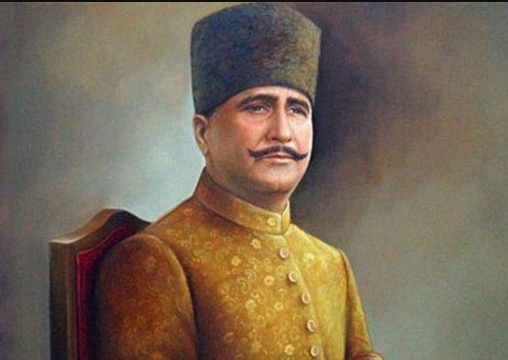Pakistan National Poet, Allama Muhammad Iqbal, is a celebrated literary figure known for his poetry and philosophy. This article will delve into his life, works, and legacy to understand why he is considered one of the most influential poets of the modern era.
Allama Muhammad Iqbal was born on November 9, 1877, in Sialkot, Punjab, in what was then British India. He was a poet, philosopher, and politician who played a vital role in the creation of Pakistan. His poetry was written in Urdu and Persian and explored themes such as self-realization, spirituality, and the human condition.
Early Life and Education of the Pakistan National Poet
Iqbal's father, Sheikh Noor Muhammad, was a tailor and a mystic who influenced Iqbal's spiritual beliefs. Iqbal received his early education in Sialkot and then went on to study at Government College Lahore, where he earned his Bachelor's degree in philosophy, politics, and economics. He then went on to study law in England and Germany.
Poetry and Philosophy of the Pakistan National Poet
Iqbal's poetry was deeply philosophical and dealt with topics such as the nature of God, the role of humanity in the universe, and the importance of self-realization. Some of his most famous works include "Asrar-e-Khudi" (The Secrets of the Self), "Rumuz-e-Bekhudi" (The Secrets of Selflessness), and "Zarb-i-Kalim" (The Reed's Pen). His poetry was influenced by the works of Rumi, Hafiz, and Goethe.
Political Activism of the Pakistan National Poet
Iqbal was an active politician and played a vital role in the creation of Pakistan. He believed that Muslims needed a separate homeland to safeguard their rights and traditions. He was a member of the All India Muslim League and served as the league's president from 1930 to 1932.
Legacy of the Pakistan National Poet
Iqbal's legacy has been immense. His poetry and philosophy have inspired generations of poets and thinkers not only in Pakistan but across the world. He is considered one of the most influential poets of the modern era and is widely celebrated as a national hero in Pakistan. His poetry continues to be taught in schools and universities, and his philosophical works are studied by scholars worldwide.
Conclusion
Allama Muhammad Iqbal was a man of many talents, and his contributions to literature, philosophy, and politics have left an indelible mark on Pakistan and the world. His poetry and philosophy have inspired generations and continue to be studied and celebrated today.
FAQs
- What was Iqbal's most famous poem?
Ans: Iqbal's most famous poem is "Lab Pe Aati Hai Dua Ban Ke Tamanna Meri" (My heart's desire comes to my lips as a prayer).
- What was Iqbal's political affiliation?
Ans: Iqbal was a member of the All India Muslim League and served as the league's president from 1930 to 1932.
- What was Iqbal's contribution to the creation of Pakistan?
Ans: Iqbal believed that Muslims needed a separate homeland to safeguard their rights and traditions, and he played a vital role in the creation of Pakistan.
- What language did Iqbal write his poetry in?
Ans: Iqbal wrote his poetry in Urdu and Persian.
- What is Iqbal's legacy?
Ans: Iqbal's poetry and philosophy have inspired generations and continue to be studied and celebrated today. He is widely celebrated as a national hero in Pakistan.
References
- "Allama Iqbal." Encyclopaedia Britannica, Encyclopaedia Britannica, Inc., 6 Apr. 2021, www.britannica.com/biography/Allama-Iqbal.
- Ali, Muhammad. "Iqbal, Sir Muhammad Allama." Oxford Islamic Studies Online, Oxford University Press, 2021, www.oxfordislamicstudies.com/article/opr/t125/e1028.
- "Allama Iqbal's Poetry." Allama Iqbal Poetry, 2021, www.allamaiqbalpoetry.com/.
